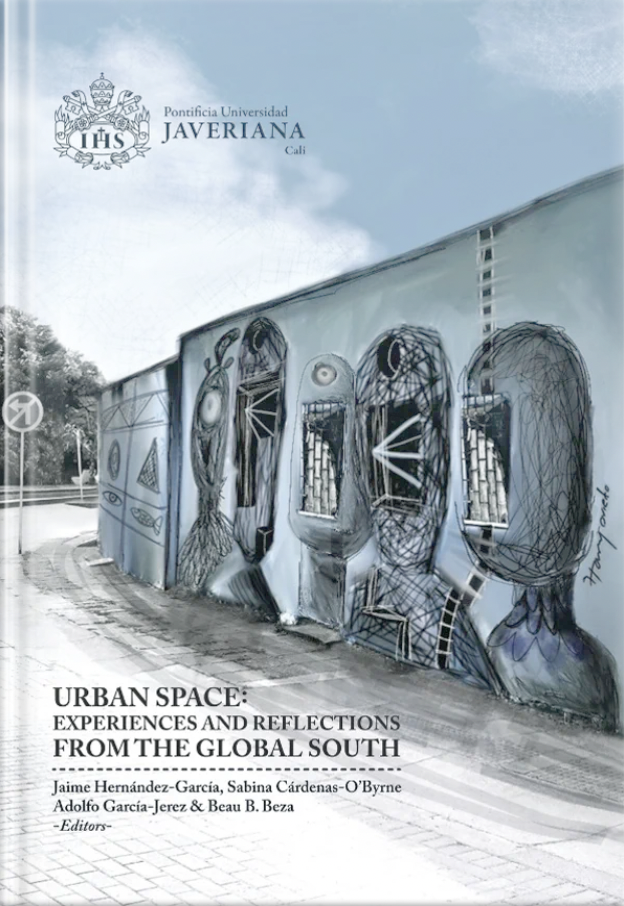Publicaciones: Urban Space: Experiences And Reflections From The Global South - Arquitectura y Diseño

Urban Space: Experiences And Reflections From The Global South
Editores: Jaime Hernández Garcia, Sabina Cárdenas O´Byrne, Adolfo Garcia-Jerez, Beau B. Beza
Premio Bienal Javeriano en Investigación 2019
Publicado por: Pontificia Universidad Javeriana, Cali, 2018
404 páginas. ISBN: 978-958-545-339-5
The structuring of urban space is as topical as ever in this era of climate change, hyper-urbanisation, post-digital labour markets, and geo-political power shifts. Scholarship of the contemporary urban condition is dominated by studies and examples drawn from the global north. Yet, cities of the global south are distinctive from those of the global north. Socio-political conditions structure patterns and practices of urban reproduction and, in turn, urban space reflects conditions in the global south. The result is different space related outcomes. This is the central topic of this collection.
Across Latin America, spatial production and reproduction reflects socially and culturally Hispanic and pre-Hispanic contexts, contrasting with anglo-oriented explanations. In this book, a unique collection of case study-based accounts posits both English and Spanish academic literature to interpret and reinterpret the appropriation, negotiation and reconfiguration of urban space in Latin American cities, from Chile to Colombia to Ecuador.
The book also has a broader geographical perspective, with contributions from Asia and Africa, including Windhoek (Namibia), Nepal, Bangkok, and Bali. Various themes emerge, ranging from spirituality in community development (Nepal) to co-production (Windoek), to the appropriation of space in informal settlements (Bangkok, Bali).
This collection will be of particular interest to urban scholars and others interested in contemporary urban change, especially those with an interest in the global south. Readers will encounter new perspectives on the state¿s enduring influence in urban land and territory reconfiguration and the contrasting wider rhetoric that affords and legitimises a key role for the private sector. The case studies also illuminate opportunities and possibilities for grassroots organising to challenge prevailing city actor hierarchies. They also highlight the political-economic consequences of particular cases of bus rapid transport projects for spatial and social segregation. Across these and other topics, recurring themes of inequality, governance, and environment are investigated in contested urban terrains. The result is a unique collection of viewpoints, with a common, critical narrative on the present and future challenges facing cities of the global south.
Prof Ralph Horne is a geographer interested in urban sustainability, in particular, low carbon transitions in housing and households. The spatial, material and contingent social and policy structures at play are the main focus of his work on both the making and shaping of urban environments. He is Deputy Pro-Vice Chancellor, Research and Innovation for the College of Design and Social Context at RMIT University. He combines research leadership and participation in research projects concerning the environmental, social and policy context of production and consumption in the urban environment.











